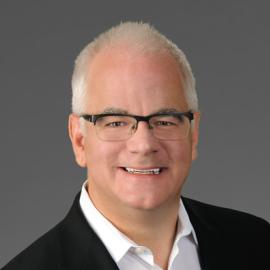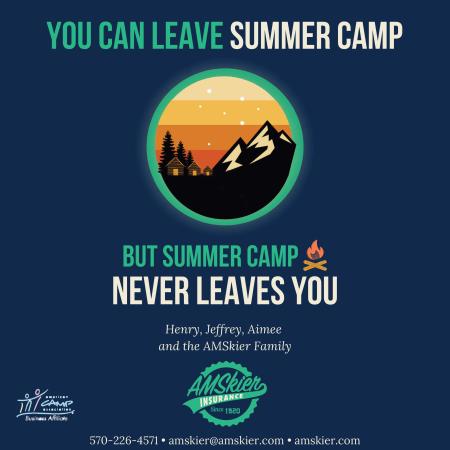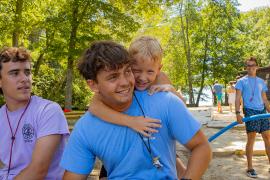
Like you, I’m always looking for ways to describe the impact of camp experiences on campers and staff. Have you heard about Harvard’s 80-year longitudinal study of health and aging? A key takeaway was that close relationships are what keep people happy throughout their lives.
These relationships with family and friends delay mental and physical decline. After decades of research, the study found that social connections are better predictors of our happiness and longevity than social class, IQ, or genetics. Robert Waldinger, MD, clinical professor of psychiatry, fourth director of the Harvard Study of Adult Development, and coauthor with Marc Schulz, PhD, of the newly released book The Good Life: Lessons from the World’s Longest Scientific Study of Happiness, said, “Loneliness kills. It’s as powerful as smoking or alcoholism” (Mineo, 2017).
In his famous Ted Talk about the project, Waldinger highlighted that good relationships keep us happier and healthier, and those strong social connections are exceptionally good for everyone. The more socially connected to family, friends, and community we are, the happier and physically healthier we are — and the longer we live. On the flipside of that coin, he also explained that people who are more isolated from others are less happy, their health worsens earlier in life, their brain functioning declines sooner, and they live shorter lives than people who are not lonely (Waldinger, n.d.).
Sadly, we live in one of the loneliest times today’s kids — and the rest of us — have ever known. Which makes camp all the more important. The lessons we help our campers and staff learn about friendship, diverse and inclusive community, and empathy can truly help them thrive in life!
So, if social connection, or belonging, is such an important driver of well-being, what are the implications for camps? What can we do to drive quality communities of belonging and social connectedness at camp? From my perspective, camp’s opportunity for an immersive culture of belonging and well-being for all often begins and ends with its staff culture. If the staff aren’t engaged and thriving at camp, so goes the rest of the camp community.
In Gallup CEO Jon Clifton’s latest book, Blind Spot — The Global Rise of Unhappiness and How Leaders Missed It (2022), he focuses on “work well-being.” According to Clifton, staff thrive when they are passionate about what they do every day — when they enjoy working with their colleagues, have development opportunities, and feel cared about as individuals. He notes that while most employers consider a low unemployment rate an indicator of employment health, few companies have a metric to measure how employees feel about their work experience. So he developed an engagement survey called Q12 which helps employers understand what employees want and need. The 12-question survey queries employees about having opportunities to learn and grow, getting meaningful recognition for doing good work, and even having a best friend at work (Gallup, 2022).
According to survey results from employers across the world, only 20 percent of people are thriving at work, while 62 percent are indifferent, and 18 percent are miserable. The evidence Clifton shares is depressing but should inspire you to keep pushing. The past few camp seasons have been extremely challenging for camp directors working to meet their staffs’ emotional needs. The Q12 could be a helpful tool in our efforts to create thriving communities of belonging for our staff and the young people they serve.
I look forward to connecting with you in Orlando, February 21–24, 2023, for the ACA National Conference. See you there!
References
- Clifton, J. (2022). Blind spot: The global rise of unhappiness and how leaders missed it. Washington, DC: Gallup Press.
- Gallup. (2022). Gallup’s employee engagement survey: Ask the right questions with the Q12 survey. gallup.com/workplace/356063/gallup-q12-employee-engagement-survey.aspx
- Mineo, L. (2017, April 11). Good genes are nice, but joy is better. The Harvard Gazette. news.harvard.edu/gazette/story/2017/04/over-nearly-80-years-harvard-study-has-been-showing-how-to-live-a-healthy-and-happy-life
- Waldinger, R. (n.d.). What makes a good life? Lessons from the longest study of happiness. TEDx. ted.com/talks/robert_waldinger_what_makes_a_good_life_lessons_from_the_longest_study_on_happiness



